Epoxy Countertops give a beautiful look to your kitchen. They are available in many colors and are becoming highly popular among homeowners. Epoxy is a refinishing product used to cover concrete, granite, and more. Applying a single coat of Epoxy helps restore any old or worn-out countertops in the kitchen, bathrooms, and floors.
Epoxy countertops are popular because they are long-lasting; they can stand any cleaning agent and resist scratches. However, one major point of discussions include – is epoxy heat resistant, what is its temperature limit, etc. However, it is important that you should first find out what an epoxy countertop is.
Visit the following link to read more about the pros and cons of Epoxy Countertops: https://www.caesarstoneus.com/blog/epoxy-countertops-read-this-before-you-buy/
What are epoxy countertops?
Primarily, Epoxy is used as a refinishing material. Epoxy countertops are not available pre-made, but you have can get them made on order to turn your home’s interior. If you try to make epoxy countertops yourself, there are high chances of making one with air bubbles.
You can find epoxy countertop kits and use them to give a new look to your existing countertops in the kitchen, bathrooms, and floor. They help create a shiny look. When considering epoxy for the kitchen, everyone has questions like – is epoxy resin heat resistant? Yes, it is heat and scratch-resistant, hence, a preferred material for recoating.
Epoxy countertops are made by mixing resin and hardener that makes a durable solid material. The epoxy box contains all the information on making it; however, it is easier said than done. The possibility of the countertop getting ruined with air or the mismatch in mixing the products can lead to a mess.
Therefore, rather than attempting to coat your countertops with Epoxy on your own, it is advisable to consult a professional.
Is epoxy heat resistant?
The heat resistance property of Epoxy depends on the material you are using for making the countertop. Therefore, Epoxy is used for making DIY projects and small materials such as earrings, finger rings, and more. In general, the Epoxy for small DIY projects does not have higher heat resistance but can handle minimal heat.
However, professionals make use of high-temperature Epoxy to make countertops. This Epoxy is highly resistant to heat and can easily handle high amounts of heat without distorting. It is used to make coasters and kitchen countertops.
High-temperature Epoxy is specially formulated for industrial use to withstand direct heat exposure. The regular Epoxy used for DIY projects tends to warp when exposed to high heat. However, the high-temperature Epoxy fits electrical coverings and mechanical repairs because of its robust properties.
What are the temperature limits for epoxy?
Is epoxy heat resistant? The answer is yes. However, there are some temperature limits that you should take care of.
In general, Epoxy can handle a temperature range from 150o F to 300o F degrees Fahrenheit. However, even with this heat resistance, epoxy countertops can only bear it for a short period.
The superior heat resistance high-temperature Epoxy can bear up to 600o F. In addition, the heat resistance properties vary from product to product.
What are the pros and cons of picking epoxy countertops?
Epoxy is a very amicable material; you can use it for refinishing your old and worn-out countertops made of a different material. However, there are various reasons why you should and should not use Epoxy for your countertops material. Let us now go through the pros and cons of epoxy countertops.
Pros
● Long-lasting Resin Finish: Homeowners prefer Epoxy because of its long-lasting shine finish on the countertops. Epoxy does not need refinishing time and again but is durable and holds the shine for years.
● Unlimited Designs and Patterns: Epoxy is easy to mold into different patterns and designs and goes with everything from terrariums to cooking materials. You do not have to pick from many patterns and colors; instead, you can create your preferred color and design using epoxy material.
● Heat Resistant: High-temperature Epoxy is ethically designed for making kitchen countertops and coasters so that you can easily place hot pans and heated objects on the surface. You can place heated objects up to 600o F, and the counter will not distort.
● Food Safe and Non-Toxic: All the material used in making epoxy countertops contains the least amount of toxic elements. Therefore, you can use it for your kitchen countertops without any issues.
● Easy to Clean: You can easily clean your epoxy countertops with any cleaning agents to ensure they are ready for use. In addition, epoxy countertops have a non-porous surface that prevents any liquid or air from getting into the surface. It also prevents bacterial and fungal growth.
● Seamless: Epoxy countertops are made by mixing resin and hardener; hence, the liquid dries up within a due course of time. It means that epoxy countertops are built seamlessly. There are no obvious lines or divisions to the guests, which gives the room a classic appearance.
Cons
No matter that Epoxy is a very beneficial countertop material, however, it has some flaws:
● Messy Application: One of the most significant disadvantages of epoxy countertops is their messy installation. Yes, they come in a variety of colors and patterns, but the procedure of pouring Epoxy on the counters is extremely dirty. You can find directions online, but Epoxy tends to leak out from the corners, creating a messy workspace. Furthermore, an equal layer is required to avoid bubbling and uneven surfacing.
● One-Shot Application: With Epoxy, one major problem is that you have only a single shot for creating the design and pattern. The design and pattern come out in any way. Therefore, it is hard to figure out the exact pattern. In addition, if there are any issues while layering the epoxy material, it may result in bubbling. As a result, you will have to change the complete countertop because there is no scope for correction on epoxy countertops.
● Prone to Staining: Epoxy countertops are prone to staining, and it can worsen if you do not choose a good quality epoxy material for your countertops. You will need to contact experienced epoxy countertops professionals who know the exact suitable material for your kitchen.
Conclusion
Homeowners prefer epoxy countertops for their durability and versatility in patterns, colors, and designs. Epoxy material is readily made for DIY use and industrial use. The regular has mild heat resistance, but the industrial Epoxy is specifically designed for bearing high temperatures of up to 600 degrees Fahrenheit. Hope you got a clear answer to your question – is epoxy countertops heat resistant. So choose your epoxy countertops, and call professionals to make epoxy countertops for you because it is hard to make them by yourself.




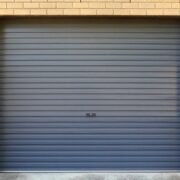
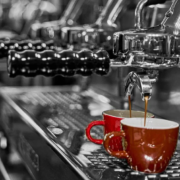



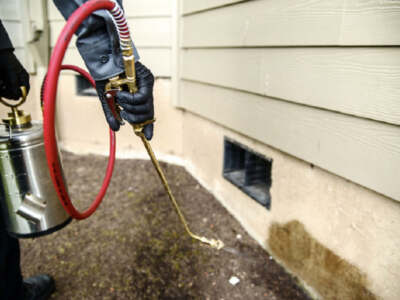
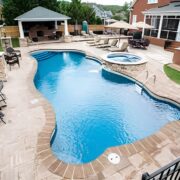

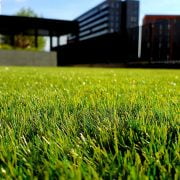
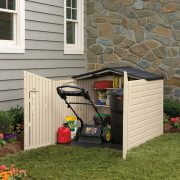
Comments